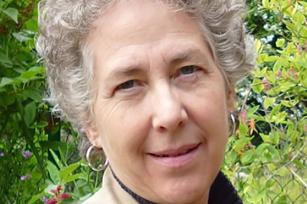
Breadcrumb
- Essential Partners
- Our Impact
- News and Notes
- Thoughts on the Guantanamo Reunion
Thoughts on the Guantanamo Reunion
A recent article in the New York Times featured an unlikely reunion. While searching for friends on Facebook, a former guard at Guantanamo Bay, Brandon Neely, did a search for some former detainees that he had guarded at the detention facility. After reconnecting with two former prisoners, Mr. Neely traveled to the UK for a face-to-face meeting with them. The BBC covered their unlikely reunion. Watch these videos and read some thoughts below from Public Conversations Project Associate, Mary Jacksteit.
This story shows the power of one. One person who feels an urgency to reach across a divide. In this instance it was a former guard, reaching out to deal with his own history and to affirm the humanity of others who he felt he had dehumanized.
It makes me recall Maggi Cage, whose anguish over the first Gulf War led to a realization that she was involved in a war too—with pro-life activists, over abortion—and that her commitment to peace compelled reaching out to her "enemies." In the moment of reaching out—courageous, outlandish—impact and ripple effects are unknowable. But in both of these cases, the one was met by a human response and reciprocal acknowledgment.
When people, improbably, bridge a chasm, hope and inspiration enter the world—a modest but important push-back against the destructive forces that will wreck everything if more of us don't start doing something different. Examples like these can inspire others in ways we can't anticipate.
This story also shows the power of media in finding a story in improbable reconciliation, in the restoring of humanity to relationships where the human-ness of the other is absent or or vigorously resisted. Americans can see two Muslim men being more like them than they may imagine, and offering forgiveness and understanding. Muslims can see a young American with humility and an open heart and mind. This is not the normal news diet. We get story after story of irreconcilable conflict, adrenalin pumping confrontation, and enemy images.
Some may assume the purpose or impact of this story is to bolster arguments against the detention facility at Guantanamo. I don't think that's a necessary conclusion.
You can believe strongly in the original and continuing need for the detention facilities at Guantanamo and yet agree that mistaken detention is a wrong to be corrected (the Pakistanis in this story were released by the Bush Administration) and that offering recognition of wrong—one-on-one, person-to-person—is the kind of courageous moral gesture that reflects the best about Americans, and about our country.
